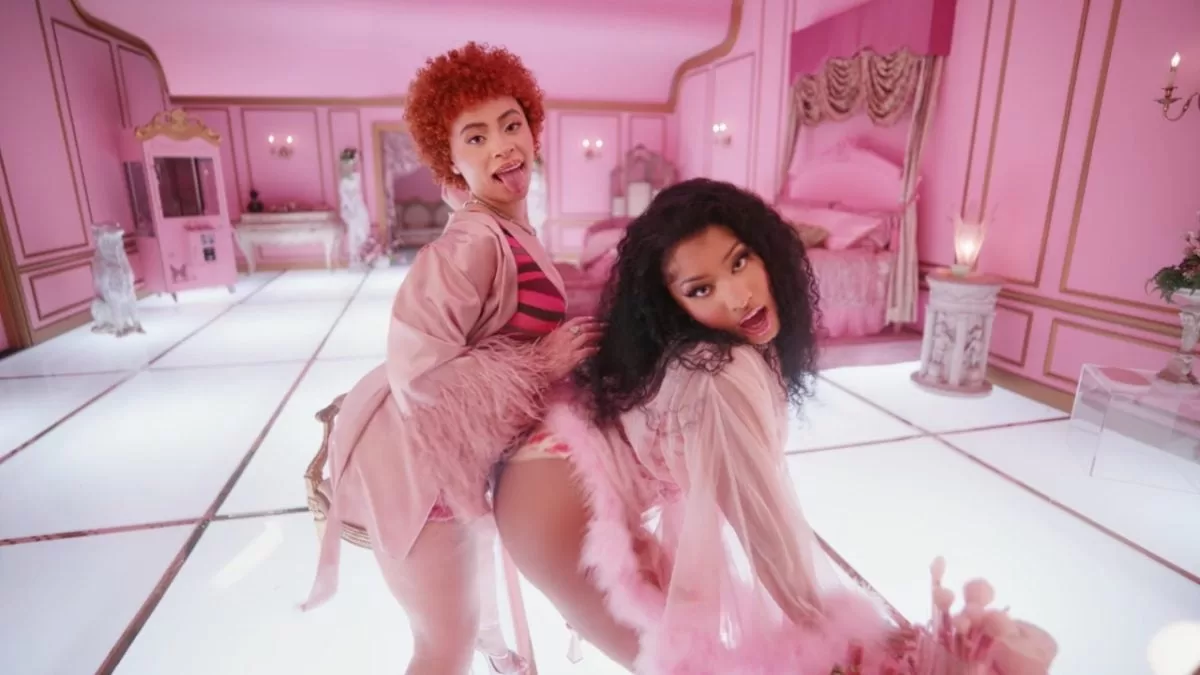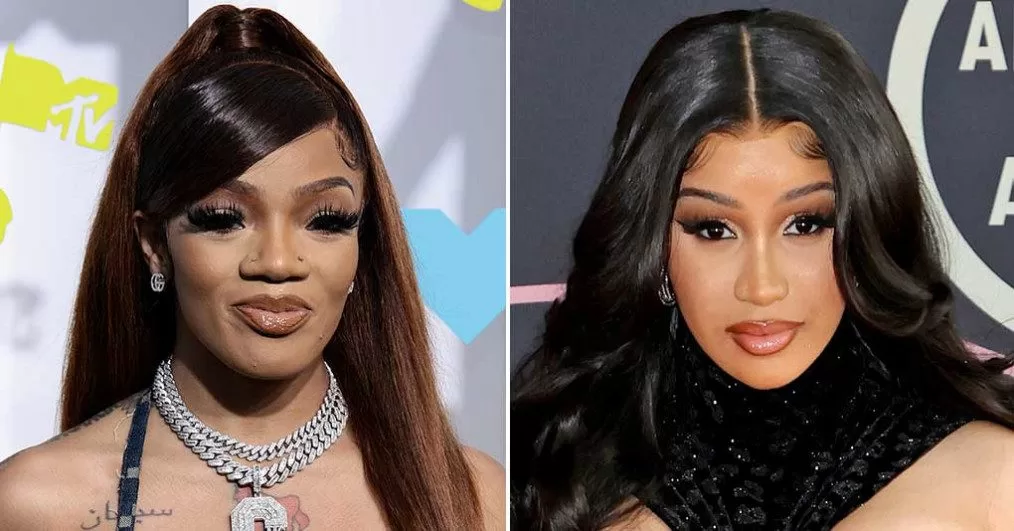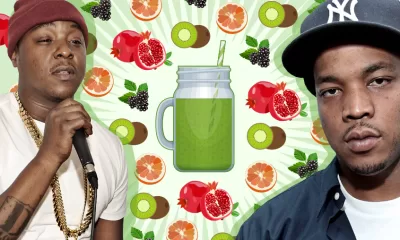Editorial
The Impact of Hip Hop Radio Stations on South Africa’s Hip Hop Music Scene

The mesmerizing beats of hip hop music have woven themselves into the cultural fabric of South Africa, transforming it into a pulsating tapestry of artistic expression. And at the heart of this phenomenon lies the profound influence of hip hop radio stations. These stations are more than just platforms; they’re a lifeline that connects artists with their listeners, bridging the gap between dreams and reality. In this article, we embark on a soulful journey, diving deep into the profound impact that hip hop radio stations have had on South Africa’s vibrant hip hop music scene.
The Rise of Hip Hop Radio Stations in South Africa
In the dawn of a new era, hip hop radio stations emerged as torchbearers, carrying the flickering flame of the genre to every corner of the nation. Pioneering stations like YFM, Metro FM’s “The Element,” and 5FM’s “The Full Clip” paved the way for dedicated hip hop programming. Despite facing initial challenges in securing airtime, these stations persisted, their hearts fueled by a passion for the music they believed in. Against all odds, they carved a space for themselves, a space that would soon resonate with millions.
One shining example of this resilience was YFM, founded in 1997, which became a trailblazer for hip hop in South Africa. By dedicating a significant portion of its programming to the genre, YFM provided a much-needed platform for local artists to showcase their talent and share their stories. It quickly garnered a loyal following among the youth, becoming a crucial source of inspiration and cultural connection.
The Role of Hip Hop Radio Stations in Promoting Local Talent
A symphony of hope and possibility echoes through the airwaves as hip hop radio stations become the launchpad for South African artists. Their music finds wings, soaring high above boundaries, and reaching the hearts of eager listeners. For the emerging talent, the support of these stations is a lifeline, breathing life into their dreams. The euphoria of hearing their own creations on the radio becomes an indelible memory, a testament to their hard work and dedication.
Artists like Sho Madjozi and AKA are shining examples of how hip hop radio stations have played a pivotal role in promoting local talent. Their breakthrough hits received significant airplay, propelling them from relative obscurity to nationwide recognition. With radio stations championing their music, they gained industry attention, secured recording deals, and found themselves in high demand for live performances.
Shaping the South African Hip Hop Sound
The radio’s power is undeniable; it shapes the very soul of South African hip hop music. With every song selected for airplay, radio stations paint a sonic canvas, creating a vibrant palette of sounds and styles. Their preferences become the pulse of the nation, guiding the genre’s direction. It’s a dance of influence and inspiration, where artists respond to the heartbeat of their audience, creating music that resonates deeply.
Notably, some radio stations have been instrumental in elevating subgenres unique to South Africa’s hip hop scene. The fusion of traditional South African sounds with contemporary beats has given rise to distinctive subgenres like “Motswako” and “Kwaito Hip Hop.” Artists like HHP (Hip Hop Pantsula) and Cassper Nyovest embraced these styles, creating music that speaks to their cultural heritage while appealing to a broader audience.
The Influence of Hip Hop Radio Stations on Lyrics and Content
As the music reverberates across the airwaves, the lyrics carry stories that capture hearts and souls. The radio becomes a conduit for emotions, giving voice to joys, struggles, and triumphs. The pen becomes a potent tool for change, as artists address social and political issues, igniting flames of activism among listeners. And yet, amidst the pursuit of relevance, some artists may find themselves navigating the balance between authentic self-expression and meeting commercial expectations.
While artists like Kwesta and Nasty C have used their platforms to address social issues and advocate for change, some critics argue that the pressure to produce commercially viable music might compromise the authenticity of the genre. However, hip hop radio stations’ continued support of artists who stay true to their roots reflects the acknowledgment of the importance of preserving the essence of South African hip hop.
Hip Hop Radio Shows and Personalities
Amidst the beats and melodies, the radio shows become a gathering place, a sanctuary for the hip hop community. Personalities with voices that resonate with the pulse of the genre become beacons of inspiration. Listeners forge deep connections, feeling seen and understood by these empathetic voices. The radio becomes a window into the lives and thoughts of artists, strengthening the bond between creators and fans.
For example, DJ Fresh, a renowned radio personality known for his passion for hip hop, has played a pivotal role in nurturing the genre’s growth. His long-running show “The Fresh Drive” on Metro FM has been instrumental in bringing South African hip hop to a wider audience, featuring exclusive interviews and live performances by both established and up-and-coming artists.
The Relationship Between Hip Hop Radio Stations and the Industry
The heartbeats of the industry sync with the rhythms of hip hop radio stations, both intertwined in a harmonious dance. For artists, airplay becomes a beacon of validation and a stepping stone to success. But the path is not without its challenges, and many independent voices yearn for recognition amidst the cacophony of mainstream giants. Nonetheless, the passion of both radio stations and artists fuels a shared pursuit of greatness.
The collaboration between radio stations and record labels has seen South African hip hop artists achieve global recognition. For instance, the rise of artists like Black Coffee and Emtee can be partially attributed to the support they received from hip hop radio stations and their subsequent signing to major labels.
The Digital Era: Hip Hop Radio in the Age of Streaming:
In the digital landscape, a new chapter unfolds, marked by the emergence of streaming platforms. Hip hop radio stations adapt to this dynamic era, utilizing digital platforms to amplify their voices and extend their reach. Yet, the soul of traditional radio remains steadfast, an enduring connection that transcends the limits of the virtual realm.
Radio stations have embraced social media and streaming services, creating playlists and exclusive content that cater to digital-savvy audiences. Platforms like Apple Music, Spotify, and SoundCloud have become supplementary stages for artists to showcase their music to global audiences.
Criticisms and Limitations
In the world of art, not all chords resonate in harmony. Critics raise concerns about the influence of radio on artistic expression. As songs vie for airplay, the quest for commercial success may eclipse the spirit of creative freedom, leaving some voices unheard. A balance is sought as artists grapple with the pursuit of authenticity amidst the allure of recognition.
Some critics argue that certain subgenres and emerging artists may face challenges in receiving airplay on mainstream hip hop radio stations due to the dominance of popular commercial acts. This imbalance raises important questions about the inclusivity of the genre and the need for continued support for diverse voices.
Top 10 Hip Hop Radio Stations in South Africa
- Kurara FM – 98.9
- Life FM 100.6
- Radio Riverside – 98.2 FM
- Munghana Lonene FM
- Phalaphala FM
- IKwekwezi FM
- Lesedi FM
- UMhlobo Wenene FM
- Ligwalagwala FM
- SAfm
In the beating heart of South Africa’s hip hop music scene lies the spirit of radio stations, a spirit that intertwines with the very essence of the genre. They are catalysts for dreams, champions of local talent, and guardians of a dynamic culture. Despite the occasional discord, they remain at the forefront of a movement that continues to thrive and evolve. Together, hip hop radio stations and artists create a symphony of voices, narrating the stories of a nation and uplifting its soul. As the future unfurls its mysteries, the radio will stand tall, ever-evolving, and forever entwined with the heart and soul of South African hip hop. Through their passionate dedication, radio stations continue to inspire the next generation of artists, shaping the future of the genre and solidifying its place in the hearts of millions.






































